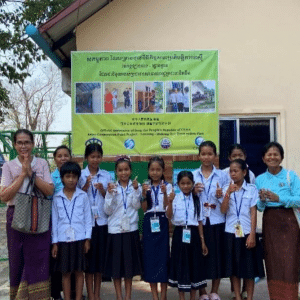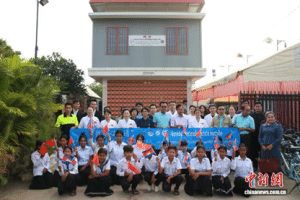A mobile phone app named 社会扶贫 (social poverty alleviation) has recently become a focus of attention on the Chinese internet. The app was designed by the “China Social Poverty Alleviation Net”, an internet platform under the management of the State Council’s Poverty Alleviation Office. It is a crowdfunding app through which families in poverty can post requests for things they need alongside their pictures. All the users’ profiles are verified by local officials, and are included in a national database of impoverished households.
The app has been available for download since July 2017, but it recently attracted some controversy after a number of posts on Weibo alleged that some schools and institutions have been forcing their students and staff to download the app, and that in some villages families may also have been compelled to sign up to the app in order to fulfil quotas. The allegations are based upon a large number of negative reviews left in various app stores. Doubts were also cast on some of the requests for aid: in one widely-shared Weibo post, a user claimed that after downloading the app, they found out that all the supplicants in one particular town or locality were asking for exactly the same thing: an electric kettle in one town, cooking oil in another town, a recorder in another.
The posts attracted a larger number of comments and reposts. Many comments were negative, but some users still praised the app’s intentions. One user commented: “even if there are cases of people being forced to download the app or donate, this does not entail the conclusion that we should not use this software to help families in poverty”.
A recent report by the widely-read 新京报 newspaper also revealed that some of the app’s impoverished users have been posting extremely odd requests. Some of the ones reported were a request for a running machine, accompanied by the explanation “my leg is broken, I would like a running machine to exercise my body”, and requests for branded clothes and rice wine.
When the journalist called the app’s helpline, he was told by a member of staff that while the platform does not require verification for the donors, the users’ requests for aid are currently verified only by the village-level officials of their places of origin. He also claimed that the app will soon deal with requests for aid that go beyond the normal confines of charity.



